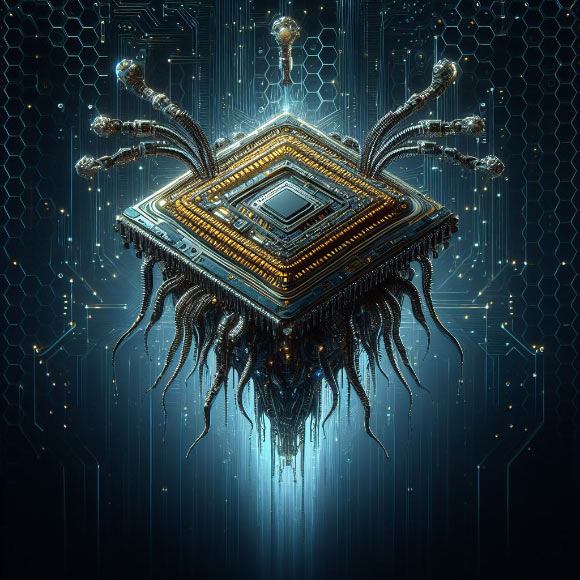In a new paper in the journal Nature Machine Intelligence, leading computer scientists from around the world review recent machine learning advances converging towards creating a collective machine-learned intelligence. They propose that the convergence of such scientific and technological advances will lead to the emergence of new types of scalable, resilient and sustainable AI systems.
Soltoggio et al. say we are set to see the emergence of Collective AI, where numerous artificial intelligence units, each capable of continuously acquiring new knowledge and skills, form a network to share information with each other.
Loughborough University’s Dr. Andrea Soltoggio and colleagues recognize the striking similarities between Collective AI and many science fiction concepts.
One example they cite is The Borg, cybernetic organisms featured in the Star Trek universe, which operate and share knowledge through a linked hive-mind.
However, unlike many sci-fi narratives, the authors envision Collective AI will lead to major positive breakthroughs across various fields.
“Instant knowledge sharing across a collective network of AI units capable of continuously learning and adapting to new data will enable rapid responses to novel situations, challenges, or threats,” Dr. Soltoggio said.
“For example, in a cybersecurity setting if one AI unit identifies a threat, it can quickly share knowledge and prompt a collective response — much like how the human immune system protects the body from outside invaders.”
“It could also lead to the development of disaster response robots that can quickly adapt to the conditions they are dispatched in, or personalised medical agents that improve health outcomes by merging cutting-edge medical knowledge with patient-specific information. The potential applications are vast and exciting.”
The researchers acknowledge there are risks associated with Collective AI — such as the swift spread of potentially unethical or illicit knowledge — but highlight a crucial safety aspect of their vision: AI units maintain their own objectives and independence from the collective.
“This would result in a democracy of AI agents, significantly reducing the risks of an AI domination by few large systems,” Dr. Soltoggio said.
The authors arrived at the conclusion that the future of AI lies in collective intelligence following an analysis of recent advancements in machine learning.
The study revealed global efforts are concentrated on enabling lifelong learning (where an AI agent can extend its knowledge throughout its operational lifespan) and developing universal protocols and languages that will allow AI systems to share knowledge with each other.
This differs from current large AI models, such as ChatGPT, which have limited lifelong learning and knowledge-sharing capabilities.
Such models acquire most of their knowledge during energy-intense training sessions and are unable to continue learning.
“Recent research trends are extending AI models with the ability to continuously adapt once deployed, and make their knowledge reusable by other models, effectively recycling knowledge to optimise learning speed and energy demands,” Dr. Soltoggio said.
“We believe that the current dominating large, expensive, non-shareable and non-lifelong AI models will not survive in a future where sustainable, evolving, and sharing collective of AI units are likely to emerge.”
“Human knowledge has grown incrementally over millennia thanks to communication and sharing.”
“We believe similar dynamics are likely to occur in future societies of AI units that will implement democratic and collaborating collectives.”
_____
A. Soltoggio et al. 2024. A collective AI via lifelong learning and sharing at the edge. Nat Mach Intell 6, 251-264; doi: 10.1038/s42256-024-00800-2


